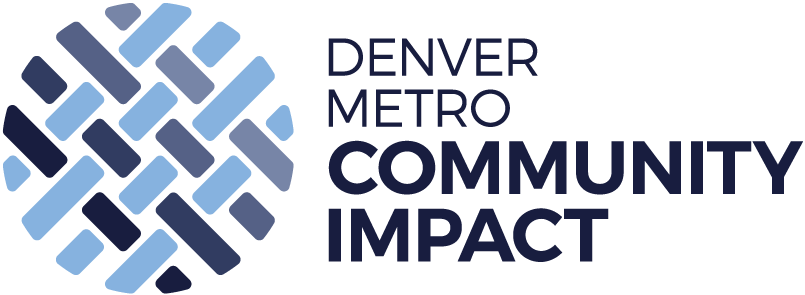Community Voice Report - Park Hill Golf Course Visioning Process
2021 DMCI Community Voice Report - Park Hill Golf Course
The report above is the second version of the Community Voice Report, which reflects additional outreach targeted to the Latinx community. To see the first version of this report, published in May 2021, click here.
Photo: ©2021 Google Earth
Overview
Equity for a Systemically Oppressed Community
The impacts of systemic oppression and racism are alive and continually reverberating throughout the community directly adjacent to the former Park Hill Golf Course. Denver’s Northeast Park Hill, Clayton, and Elyria Swansea Neighborhoods have great diversity in race/ethnicity and income. However, like most urban neighborhoods across the country, these areas have been heavily influenced by institutional practices that have reinforced social inequity. These inequities cause challenges when it comes time to engage a changing neighborhood, where the platform for a community’s voice typically belongs to those with privilege. This privilege manifests in many ways and can overrepresent the viewpoints of a community. Those without the benefit of free time are often unheard, missing out on helping to shape the future of their environments. Without these voices, communities continue to develop and change in ways that cater to the privileged, further contributing to inequitable neighborhoods.
The efforts of this project were to promote equity within the community’s voice and ensure that the marginalized are respected by gaining opportunities to help shape the future.
The Park Hill Golf Course (PHGC) Area Visioning Process is an effort to explore the possibilities of what the former golf club property could be. Complicated by a hotly debated easement issue on the property, the City & County of Denver has embarked on the journey to understand what the community, the city, and the environment need. To do this, city planners desired to engage the community in new ways in hopes of promoting a more equitable process.
The statistical block groups that border the golf course are deeply diverse. The Black, Latinx, and White populations each represent roughly thirty percent of the surrounding communities, along with a diversity of income levels. For equity, it is imperative to ensure that the marginalized low-income and Black, Indigenous, and people of color (BIPOC) communities are provided platforms for input.
The Community Navigator Program
In the neighborhoods most impacted by the potential change of the golf club, Community Navigators worked to encourage participation from underrepresented populations, including seniors, youth, Latinx, African Americans, and renters, for their input on the PHGC Visioning Process. Navigators engaged with their community to provide feedback on how they experience the site in its current state and how they would like to interact with it in the future. The Community Navigators selected are in and from the neighborhoods directly adjacent to the former golf club and are knowledgeable about and have strong connections to the community.
As a convener and facilitator of community and an organizational network, Denver Metro Community Impact (DMCI) represents a medium to understand neighborhood interests, the world of philanthropy, government, and any other entity seeking to work for and with the community. We hold an impactful position in mobilizing philanthropy funding directly to the community’s needs by fortifying the voice with data while making a case for coordinated and responsive action.
DMCI puts community voice first. We developed our workflow from the best practices of the Collective Impact Framework and the best practices of community organizing. Starting with the community voice in mind, we seek leaders from within that have a knack for building relationships, listening to stories, and advocating for their neighbors. Through these leaders, we discover shared interests, issues impacting equity, and the desire for action and change. After identifying this, we start the Collective Impact work by fortifying the community’s voice with data, continuing communication with the leaders, and inviting appropriate organizational partners to brainstorm collaborative action while seeking continuous community feedback along the way. As a result, advocacy, solutions, and change are delivered to the community by the community and our partners.
Community Talks
The community is the primary partner and director of this work and the resulting reports. To provide the best platform for elevating the community’s voice, DMCI hired eight leaders from within the community. Each Community Navigator is connected to the community in various ways and recognized as leaders within their circles. They organized Community Talks throughout the communities directly adjacent to the former golf club regarding the Park Hill Golf Course Area Visioning Process. The Talks were structured to increase equity by providing intentionally smaller and more comfortable settings for residents and community members to participate and be heard. During the Visioning Process, the Talks served as a source to glean input and amplify the voices of those in the community that are not typically heard.
1-on-1 Conversations
To provide even more equitable platforms for galvanizing, Community Navigators led 1-on-1 Conversations throughout the community. This engagement method gives community members a chance to voice their opinions, experiences, and desires for the visioning process, regardless of potential aversions to group meeting dynamics or availability to attend.
Data Processing & Administration
To support the work of the Community Navigators, Denver Metro Community Impact (DMCI) handled the data input synthesis, analysis, and reporting. DMCI also served as an administrative and community engagement strategy consultant to the visioning process.
Overarching Goals of Visioning Process
Promote participation from underrepresented and marginalized neighbors of the former Park Hill Golf Club, including but not limited to African-Americans, Latinx, seniors, youth, and renters.
DMCI Methodology
Thematic Analysis
Thematic analysis looks at patterns of meaning in a data set – for example, a set of interviews or focus group transcripts. In the case of this project, the sources of the data sets are the Community Talks and the 1-on-1 Conversations that the Community Navigators conducted. A thematic analysis takes bodies of data and groups them according to similarities/themes. The themes help us make sense of the community’s experiences, desires, concerns, rejections, and sentiments regarding the Visioning Process.
Step 1: Audio Transcription/ Note Taking
In this step, DMCI gets familiar with the data, reading through notes provided by Community Navigators and analyzing and transcribing meeting recordings.
Step 2: Coding
After collecting the notes and transcripts, we begin to “Code” the data, which involves highlighting and relating phrases and sentences with shorthand labels that group similarities.
Step 3: Generating, Reviewing & Naming Themes
After coding, themes emerge from the data in the form of specific topics mentioned multiple times. These themes are then reviewed across our team and named to identify the shared perspectives of community members.
Step 4: Write Up and Analysis
In the final step, we tally up the results, write up our analysis, and present the project’s major themes, reflecting the community’s collective voice.



